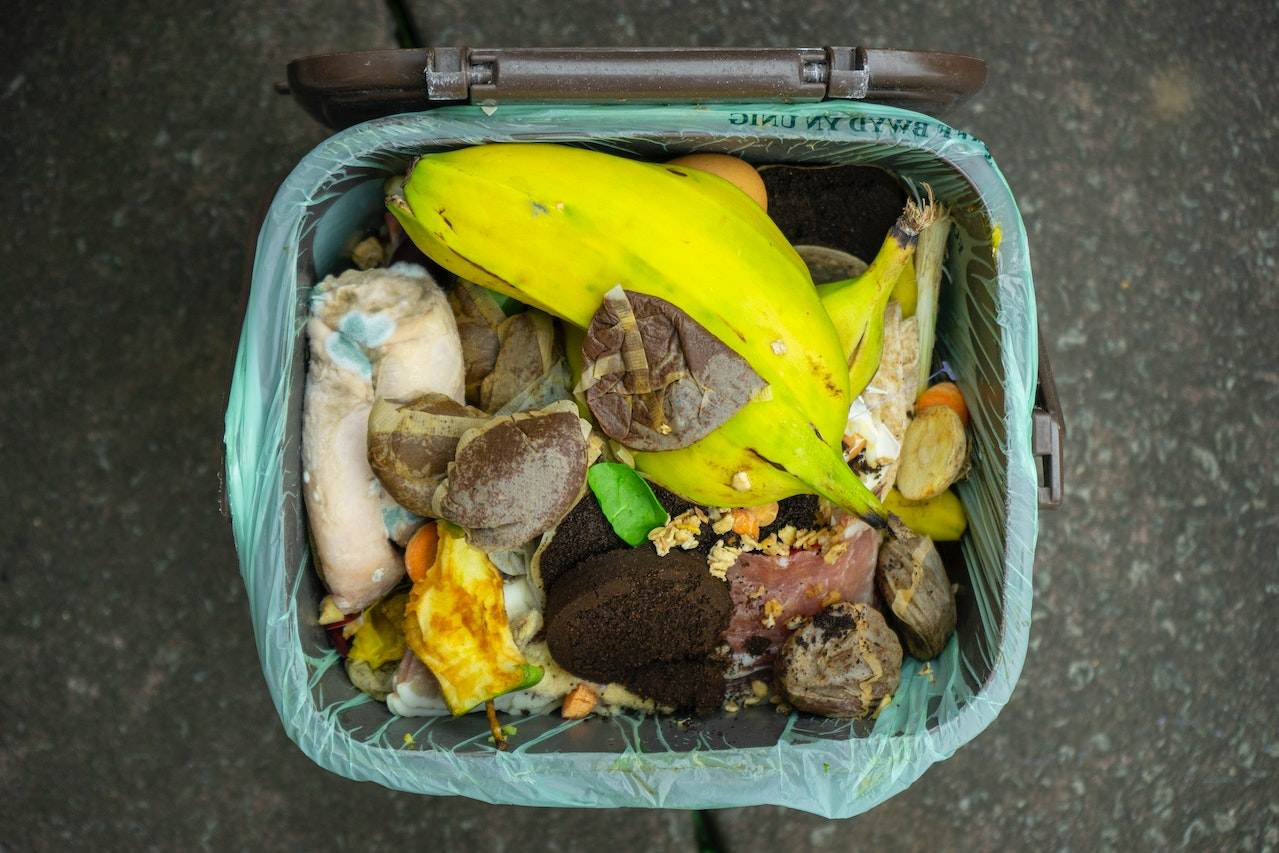About a third of the food grown globally is never eaten, and based on national figures, food waste in Sheffield releases around 215,381 tonnes of greenhouse gas equivalents every year. It’s a significant issue when it comes to environmental issues, but it is even more shocking when we are seeing rising rates of food insecurity in Sheffield and the UK as a whole. Food waste is a complex issue, but the solutions to zero food waste are available, and we are well equiped as a city to implement this
What is food waste, and why is it bad news?
Food waste is food that is intended for human consumption that is wasted and lost and can occur anywhere throughout the entire supply chain from farm stage to harvest, restaurants to retailers and businesses to households. The majority of food waste happens before and after the supermarket shop floor, with ¼ of all food in the UK never making it out of the soil due to supermarket supply chains.
Food production uses significant amounts of land, water and growing materials, all of which have their own carbon footprint. If a third of this food is not eaten globally, all that time, energy and expense have gone to waste, and no one is reaping any rewards. Furthermore, when food waste is placed in landfill, it breaks down into methane, a greenhouse gas 86 times more potent than carbon dioxide. So, not only have we produced emissions with its production, improper disposal has increased the effect. This is terrible news for the planet because these gases contribute significantly to the climate crisis.
Water waste is part and parcel of food waste too. Agriculture accounts for 70% of the water used throughout the world. If we throw away 1kg of beef, we’re wasting 50,000 litres of water used to produce the meat. 2022 had the hottest days on record in the UK and many parts of the country experienced droughts this year. Reducing food waste can aid water conservation when we need it most.
On a human level, food waste is a terrible thing because we still have severe famines, hunger and food insecurity throughout the world including in our own city of Sheffield. The UN estimates that globally 1 in 9 people are undernourished. The UK throws away around 9.5 million tonnes of food waste in a single year – even though 8.4 million people in the UK are in food poverty. We have the capabilities to feed the world, and food waste has no part of it.
What can we do about food waste in Sheffield?
Ensuring no food is wasted takes planning and community effort, but Sheffield has the ability to reduce food waste significantly over the next few years. Here’s how.
As an individual
While food waste cannot be tackled by individuals alone, households in Sheffield can help. The average UK family spends £470 per year on food that’s binned and not eaten. That’s money that is better in your pocket, so here are some tips to make sure food waste is kept to a minimum in your home.
Plan your meals with portion size and make a shopping list. This will make sure you only buy what you need and won’t be tempted by impulse purchases. Store food correctly to get the most out of it. Visit the Love Food Hate Waste website (www.lovefoodhatewaste.com) for information on how best to look after your food when you get it home. If something is looking a little bit sad in the back of your fridge, store it in the freezer or cook it up with other leftovers for tonight’s dinner.
Anything you cannot save or is inedible, such as veg trimmings or bones, can be composted or turned into stock. As of 2023, Sheffield City Council will be providing curbside food waste collection to turn into compost. You can put the majority of food waste in this collection, making sure it is properly disposed of and doesn’t get sent to landfill.
As an organisation
Food waste should be handled with stock planning and a pinch of creativity by businesses and organisations throughout the city. For food retailers, monitoring best before dates, use-by-dates, and stock control can help reduce excess ordering and throwing away goods. If food is coming to the end of its shelf life, it should be donated to charitable organisations and non-profits to be shared with the community. The Sheffield Food Bank Network feeds thousands of people throughout the city and always accepts donations, especially as Christmas approaches. Food Works Sheffield collects surplus food and redistributes it through their market, kitchens and cafes.
For the hospitality industry, stock management is a key component of reducing food waste too. However, a keen chef can make even the smallest of scraps into something delicious for paying customers. Vegetables and fruit scraps can be turned into stock, vinegars, liqueurs and more. With meat and fish products, nose-to-tail eating means not only consuming the muscle but every other edible part of an animal. Nose-to-tail eating leaves nothing to waste, maximises nutrition and respects our food sources; plus minimal food waste.
Lastly, if food leftovers are unavoidable, they should be disposed of to maximise their potential. Large-scale composting and waste disposal can provide several benefits for the community. Some methods can produce biogases that could be a sustainable solution to natural carbon gases contributing to the climate crisis. But, more importantly, commercial food waste can be turned into compost which could help urban and peri-urban farmers in Sheffield grow more local produce for Sheffield folks.
Action in the Steel City
Of course, we also need food waste action to be spearheaded by national and local government. As stated above, Sheffield City Council is introducing household food waste collections as part of your regular bin day and several community composting schemes are in the works thanks to ShefFood and their partners. But, we need more legislation to prioritise food waste reduction in our economy. For example, In 2016, France became the first country in the world to ban supermarkets from throwing away or destroying unsold food, forcing them instead to donate it to charities and food banks. It’s actions like this that can make UK food waste a thing of the past.

